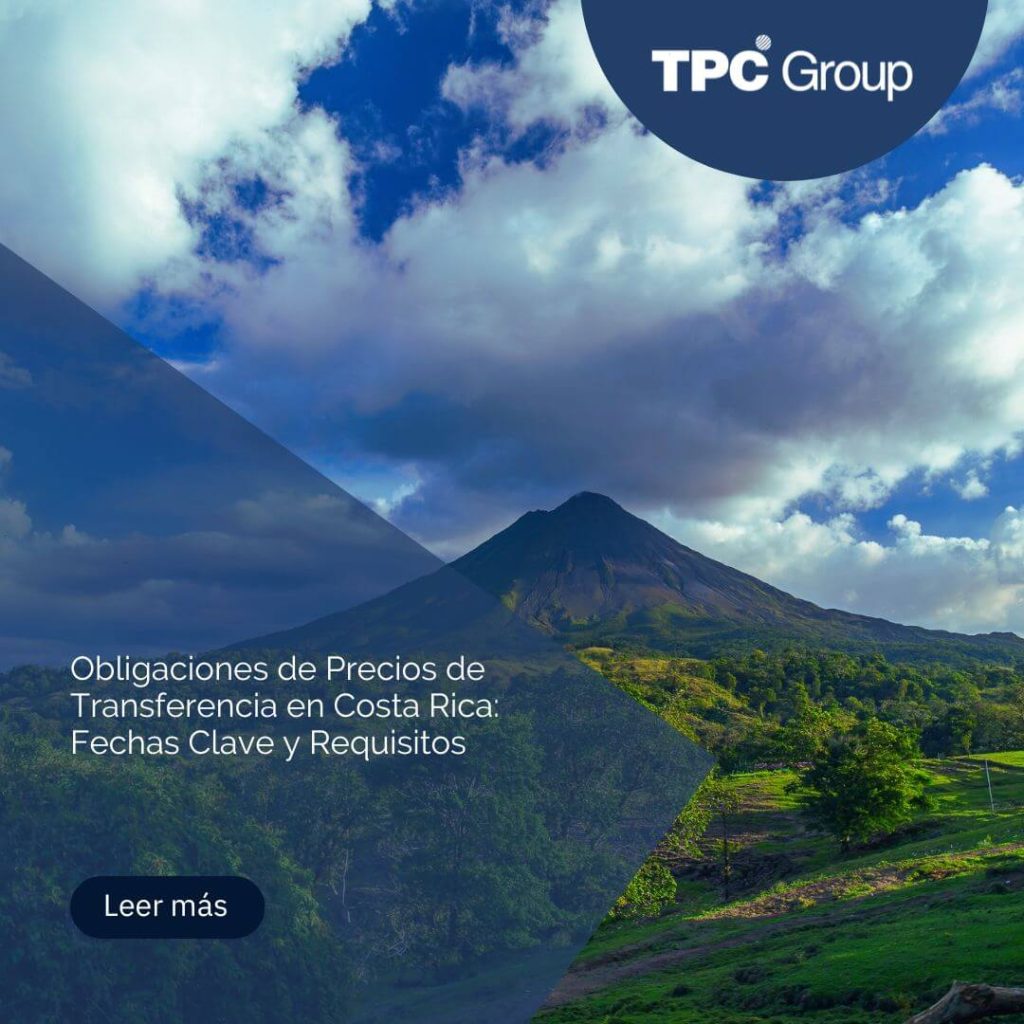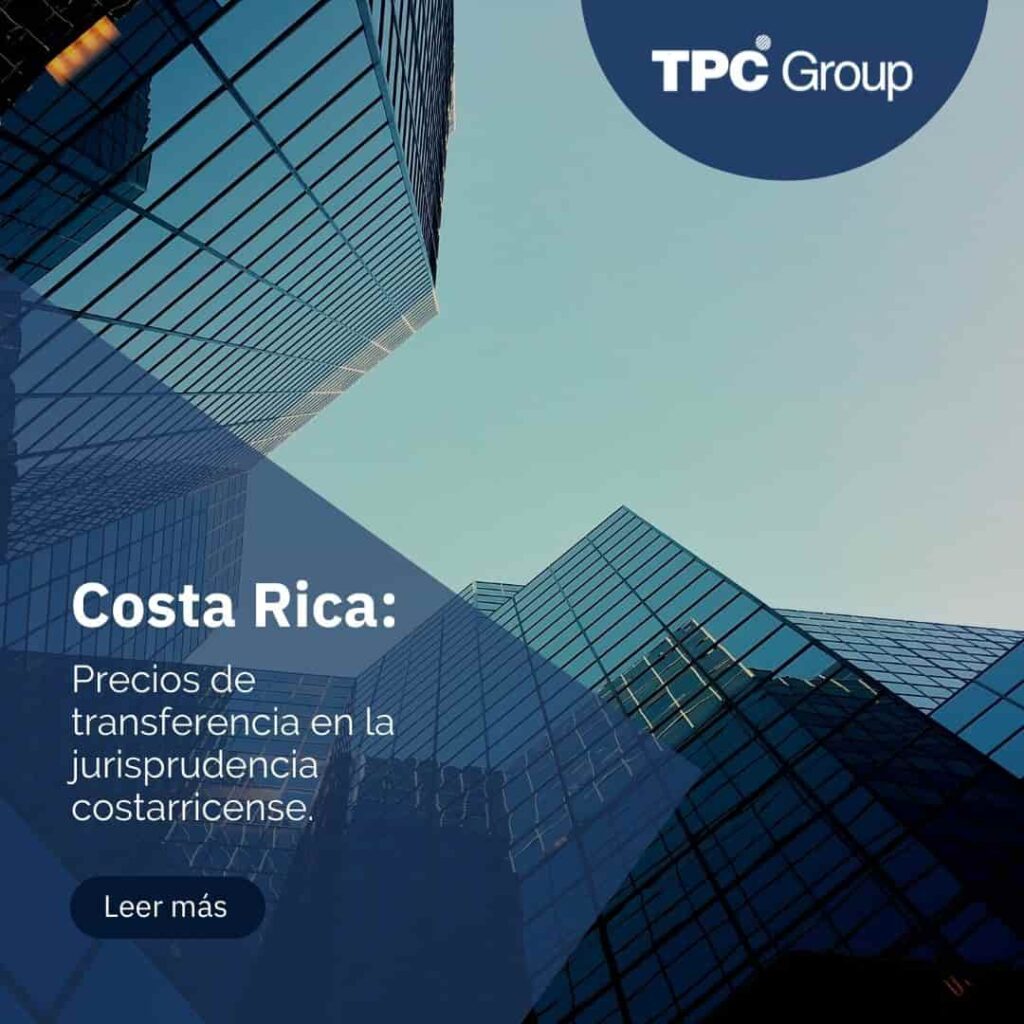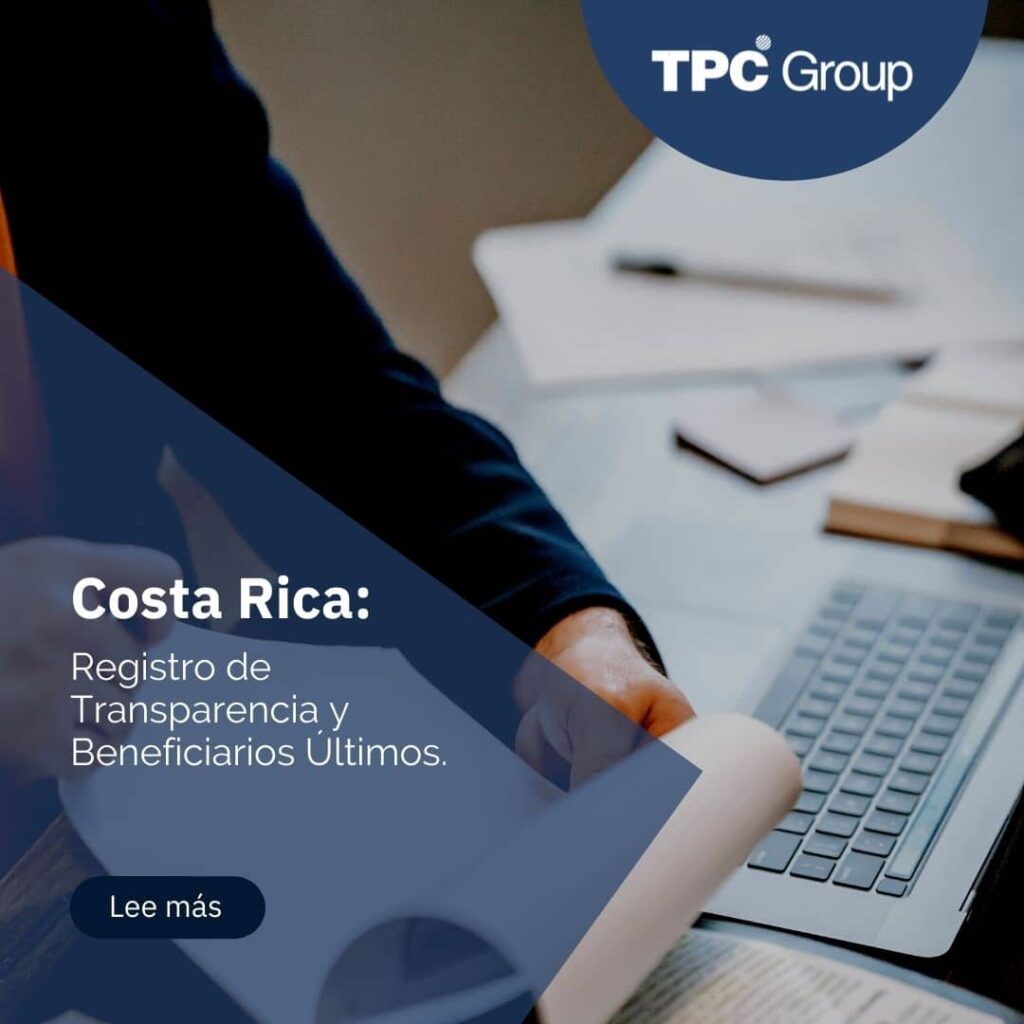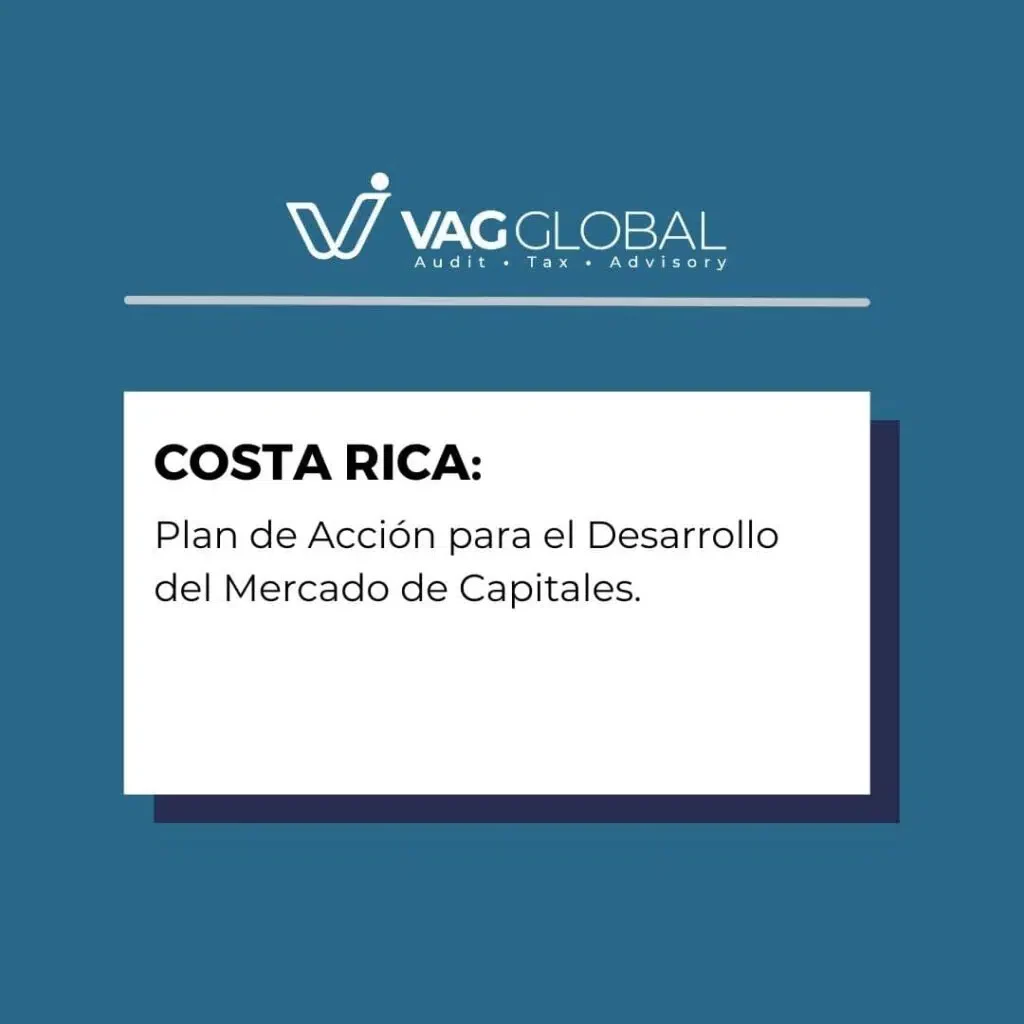Concepto y Regulación en Costa Rica
Los Precios de Transferencia en Costa Rica regulan las transacciones que se realizan entre partes relacionadas o vinculadas. Estas transacciones deben llevarse a cabo tal y como lo hubieran hecho partes independientes.
La regulación inicia su aplicación, según los lineamientos de la OCDE, con la Directriz Interpretativa N°20-03 y con la publicación del Decreto 37898-H en el 2013, en el cual se señalaba el ámbito de aplicación, normas de vinculación, obligaciones formales, entre otros.
Asimismo, en septiembre de 2016, se emite la Resolución No. DGT-R-44-2016 por la Dirección General de Tributación (DGT) que establece los lineamientos para la declaración informativa en esta materia. A la fecha, no se ha definido cuando se debe presentar esa declaración informativa.
En Resolución DGT-R-16-2017 del 30 de marzo de 2017, sobre documentación de los estudios de precios de transferencia, se indica la documentación mínima que debe contener un estudio de precios de transferencia. Esta es la información estándar internacional promovida por la OCDE.
Posteriormente, en el año 2018 se incorpora las normas relativas a la materia de precios de transferencia a su Ley de Impuesto sobre la Renta (LISR), mediante Ley N°9635 y en el año 2019 se incorpora a su Reglamento, mediante Decreto Ejecutivo N°41818.
A su vez, con la finalidad de cumplir con los lineamientos señalados por la Organización para la Cooperación y Desarrollo (OCDE) en la acción 13 del Plan BEPS (Base and Erosion and Profit Shifting) sobre documentación comprobatoria, se emite en dicho año, la Resolución N°DGT-R-001-2018, en la cual se establece la obligación del Reporte País por País para grupos económicos multinacionales.
Además de lo señalado, en 2019 se emite la Resolución DGT-R-49-2019, por la cual el contribuyente que realiza transacciones con partes vinculadas deberá contar con un reporte informativo de la empresa local y un reporte de información corporativa.
Mediante la Resolución DGT-R-14-2021 del 17 de marzo de 2021, sobre el trámite de Acuerdos Previos sobre Precios de Transferencia, se establecieron los requisitos y procedimientos para la presentación de estas solicitudes.
Definición del Principio de Plena Competencia
Se entiende por principio de libre competencia o «Arm’s Length«, a aquel que tiene como fundamento el que los precios pactados entre partes vinculadas se encuentren a valor de mercado, es decir que los precios de las operaciones se determinen como si lo hubiesen realizado partes independientes.
En el caso de la legislación en materia de precios de transferencia en Costa Rica, este se encuentra regulado actualmente en el artículo 81 bis de la LISR.
Dicho artículo señala que, los contribuyentes que realicen transacciones con partes vinculadas deberán determinar sus ingresos o deducciones acordes al principio de libre competencia, es decir como si lo hubiesen celebrado con partes independientes.
Definición de Partes Vinculadas en Costa Rica
Acorde al artículo 68 del Reglamento de la LISR, establece como partes relacionadas, a las señaladas en el Artículo 2 de la LISR y también aquellas residentes en el extranjero o en el territorio nacional, que tengan influencia, ya sea a través de la dirección, control o capital del contribuyente, o cuando las mismas personas participen directa o indirectamente en la dirección, control o capital de ambas partes, o que por alguna otra causa objetiva puedan tener decisión sobre el precio.
Se presume que existe relación, en los términos de la LISR, cuando un contribuyente realice operaciones con una persona o entidad que resida en una jurisdicción del exterior no cooperante, entendiéndose como esta última, a aquellas que cumplan las siguientes condiciones:
- En comparación a las tasas impositivas de Colombia, son casi nulas o nulas.
- Que se trate de territorios con un Impuesto sobre las Utilidades inferior en más de un cuarenta por ciento (40%) de la tarifa establecida en el inciso a) del Artículo 15 de la LISR.
- Que se trate de territorios con los cuales Costa Rica no cuente con un convenio para el intercambio de información o para evitar la doble imposición con cláusula para el intercambio de información, vigente.
-
Criterios de Vinculación
Las personas físicas o jurídicas que estén dentro del ámbito de los siguientes criterios:
- Una de ellas dirija o controle a la otra o posea, directa o indirectamente, como mínimo el 25% de su capital social o de sus derechos a voto.
- Como máximo cinco personas dirijan o controlen ambas personas jurídicas, o posean en su conjunto, de forma directa o indirecta, como mínimo el 25% de participación en el capital social o los derechos a voto de ambas personas.
- En el caso de personas jurídicas que formen parte de una misma unidad de decisión. Al respecto, se presumirá que existe unidad de decisión cuando una persona jurídica sea socia o partícipe de otra y se encuentre en relación con esta cuando cumpla alguno de los siguientes criterios:
- Mayoría de votos.
- Poder para nombrar o destituir a la mayoría de los miembros del órgano de administración.<*p>
- Que tenga opción en acuerdo con otros socios de obtener la mayoría de los derechos de voto.
- Que tenga un papel preponderante en la elección de los miembros de administración.
- Que coincidan en su mayoría los miembros del órgano de administración de la persona jurídica dominada, con los miembros del órgano de administración o altos ejecutivos de la persona jurídica dominante o de otra dominada por esta.
- Cuando 02 o más personas jurídicas, cada una de ellas forme una unidad de decisión respecto de una tercera persona jurídica, en cuyo caso todas ellas integrarán una unidad de decisión.
Sobre el particular, también se considera que una persona física posee una participación en el capital social o derechos de voto, cuando la titularidad de la participación, directa o indirectamente, corresponde al cónyuge o persona unida por relación de parentesco, en línea directa o colateral, por consanguinidad hasta el cuarto grado o por afinidad hasta el segundo grado.
-
También se consideran partes relacionadas en los siguientes:
- Un contrato de colaboración empresarial, o contrato de asociación en participación, cuando uno de los contratantes o asociados participe directa o indirectamente en más del 25% en el resultado, o la utilidad del contrato, o de las actividades derivadas de la asociación.
- Una persona residente en el país, y sus establecimientos permanentes en el exterior.
- Un establecimiento permanente situado en el país, y su casa matriz residente en el exterior, otro establecimiento permanente de la misma, o una persona con ella relacionada.
Métodos de Precios de Transferencia en Costa Rica
De acuerdo al Artículo 70, del Reglamento en mención, a fin de poder analizar que los precios pactados entre partes relacionadas estén acorde al principio de libre competencia, se establece los siguientes métodos de precios de transferencia:
- Método del Precio Comparable no Controlado.
- Método del Costo Adicionado.
- Método del Precio de Reventa.
- Método de Partición de Utilidades.
- Método del Margen Neto de la Transacción.
Asimismo, el Decreto 37898-H señala que para el caso de commodities se permite la utilización de una metodología basada en la valorización internacional en los mercados de commodities. Los métodos establecidos no limitan las facultades de la Administración Tributaria para el uso o implementación de otros métodos que la ciencia o la técnica desarrolle para el análisis de las operaciones relacionadas con los precios de transferencia.
Comparables en Costa Rica
El artículo 69 del Reglamento de la LISR, señala que, a fin de realizar el análisis de comparabilidad, se deberá tomar en consideración los siguientes criterios:
- Características de la operación a analizar.
- Funciones, actividades y riesgos de la transacción.
- Términos contractuales.
- Circunstancias económicas o de mercado.
- Estrategias empresariales.
- Identificación y análisis de precios de transacciones comparables.
Documentación y Declaración Informativa de Precios de Transferencia en Costa Rica
El Reglamento de la LISR, en sus Artículos 72 y 73, prevé para el ámbito de los precios de transferencia, una declaración jurada informativa y la presentación de la documentación comprobatoria, respectivamente.
Declaración Informativa de Precios de Transferencia
El Artículo 72 del citado Reglamento señala que, se encontrarán obligados a presentar ante la Dirección General de Tributación, una declaración informativa, aquellos contribuyentes que cumplan alguna de los siguientes criterios:
- Que realizan operaciones vinculadas y se encuentren en la categoría de grandes contribuyentes nacionales o grandes empresas territoriales, así como aquellas personas o entidades en zona de libre comercio.
- Tengan transacciones con empresas relacionadas y que independiente o conjuntamente superen el monto equivalente a 1,000 salarios base en el año correspondiente.
A su vez, en enero de 2018, mediante Resolución N°DGT-R-001-2018, se estableció la obligación de presentar el Reporte País por País para aquellas entidades o grupos multinacionales que tenga ingresos brutos a nivel global y acumulados iguales o superiores a 750 millones de euros o su equivalente y que cumplan alguno de los siguientes aspectos:
- Sea una entidad dominante de nivel superior de un grupo multinacional, que sea residente fiscal de Costa Rica.
- En caso se autorice a una entidad dominante sustituta a presentar el reporte.
Dicho reporte, según el Artículo 5 de la Resolución antes señalada deberá presentarse hasta el 31 de diciembre del año siguiente de realizadas las operaciones con partes vinculadas.
Documentación Comprobatoria
De acuerdo al Artículo 73 del Reglamento, los contribuyentes se encuentran obligados a tener la documentación sobre el valor de sus operaciones, siendo indispensable tener dicha información a disposición de la Administración tributaria.
Asimismo, mediante la Resolución DGT-R-49-2019, se dictó medidas sobre la información a documentar, por lo cual el contribuyente deberá contar con un reporte informativo de la empresa local (Reporte Local) y un reporte de información corporativa (Reporte Maestro), esto en línea a la Acción 13 de BEPS sobre documentación de comprobatoria en la materia.
Dicha información es anual y como se hizo mención debe estar a disposición de la Dirección General de Tributación.
Sanciones por Incumplimiento de Precios de Transferencia
El incumplimiento total o parcialmente en la presentación de la información dentro del plazo de 10 días hace mérito a una sanción del (2%) de la cifra de ingresos brutos del sujeto infractor, en el período del impuesto a las utilidades, anterior a aquel en que se produjo la infracción, con un mínimo de tres salarios base y un máximo de cien salarios base, según los Artículos 82 y 83 del Código de Normas y Procedimientos Tributarios.






